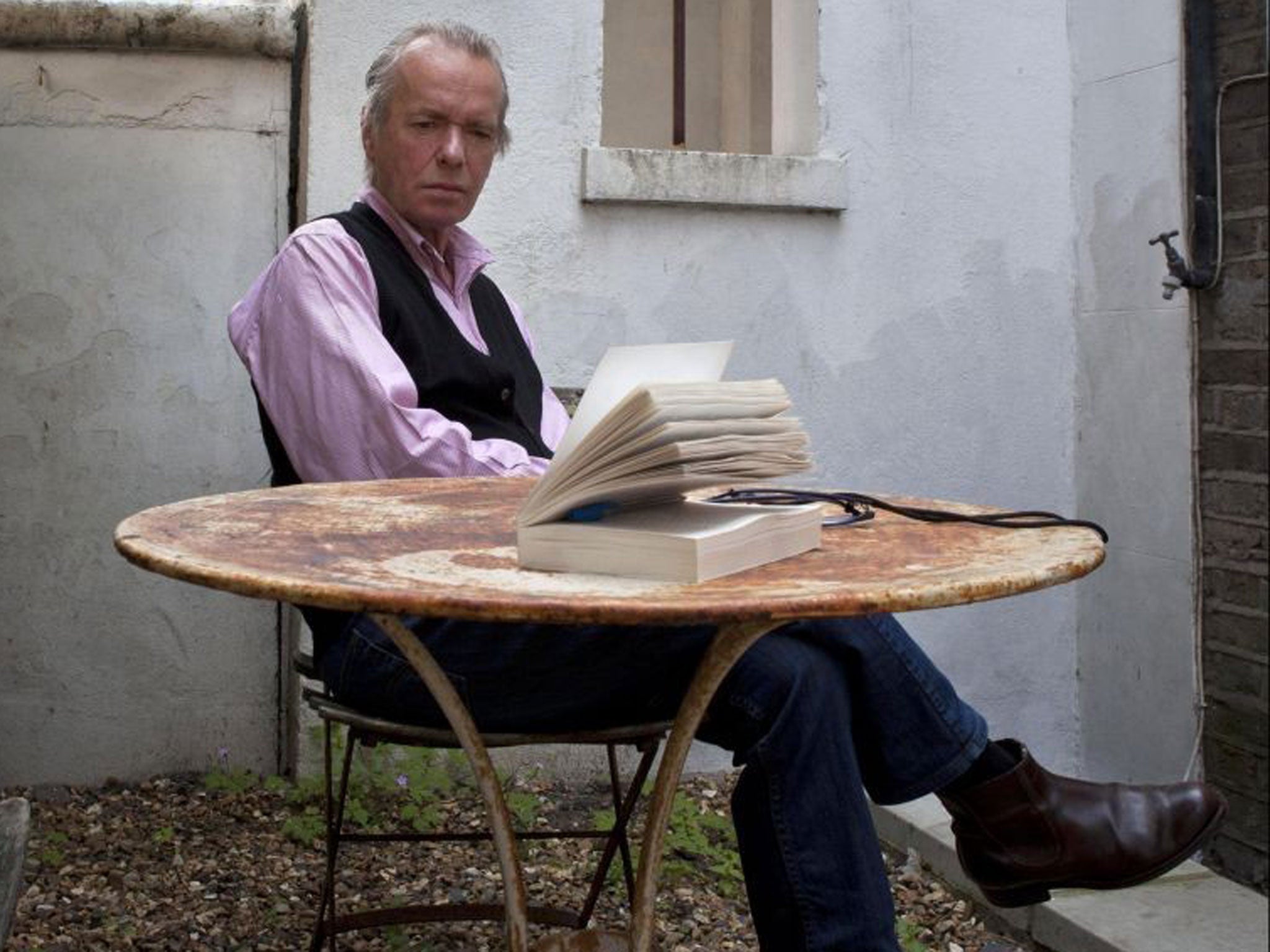Martin Amis: Money has finally defeated British obsession with social class
The monarchy is 'nearing the end of the road,' the author believes

Your support helps us to tell the story
From reproductive rights to climate change to Big Tech, The Independent is on the ground when the story is developing. Whether it's investigating the financials of Elon Musk's pro-Trump PAC or producing our latest documentary, 'The A Word', which shines a light on the American women fighting for reproductive rights, we know how important it is to parse out the facts from the messaging.
At such a critical moment in US history, we need reporters on the ground. Your donation allows us to keep sending journalists to speak to both sides of the story.
The Independent is trusted by Americans across the entire political spectrum. And unlike many other quality news outlets, we choose not to lock Americans out of our reporting and analysis with paywalls. We believe quality journalism should be available to everyone, paid for by those who can afford it.
Your support makes all the difference.An American-style pursuit of wealth has finally defeated the British obsession with social class, the author Martin Amis has claimed.
Sending a child to Eton College was once a class statement. But now it is a display of mere spending power, the novelist argues in a BBC4 documentary, Martin Amis’s England.
Amis, who moved to New York, with his family in 2012, reflects on educational opportunities in his native country.
“When I was of that age (a teenager), there was a vast gulf between state schools and public schools and it was a class gulf. But now, I think, it’s no longer a reflection of class, it’s a reflection of money,” the Radio Times quotes him saying in the film.
Amis, author of the acclaimed 1984 novel Money, which satirised the excesses of the Thatcher-era greed, said: “Money has won. It had always won in America but now it’s won in England too.
“So if you put your son’s name down for Eton it’s because you can afford to do that, it’s not because it’s any class-granted right. I have no nostalgia for the class society but I have no very great enthusiasm about the money society.”
Amis’s comments will fuel the debate over the influence currently wielded by old Etonians. Education Secretary Michael Gove criticised the number of former Eton pupils in David Cameron’s inner circle, describing their prominence as “ridiculous”.
Putative Conservative leadership candidate Boris Johnson is also an old Etonian, as are many prominent actors including Damian Lewis, Eddie Redmayne and Tom Hiddleston.
Amis, 64, reflects on the social aspirations of his father, the novelist Kingsley Amis. “We were very poor when I was a baby, and then things began to look up when my father’s first novel was published when I was seven and life visibly improved,” the Time’s Arrow author writes. “
“But even then there was no question of bursting into the upper middle classes – you were still completely defined by your birth not by your achievements.”
“In my mid-teens I was obsessed by class and ambitious to rise up from, you’d have to say, lower middle class origins.
“I got hold of some early tape of one of my father’s first TV interviews and he sounded ridiculous, he’d talk in that lah-di-dah way, hoity-toity, giving himself airs, and that accent has completely disappeared, but it was almost standard for anyone who was not working class to talk like that.”
Amis examines his experience of England for the BBC after his move to New York with wife Isabel Fonseca and their children was interpreted, in the author’s words, as “me saying, 'England can go fuck itself.'”
He believes that the monarchy “is nearing the end of the road. It’s connected with our love of Upstairs, Downstairs, those country-house dramas, it’s nostalgia for that class society, it’s all connected, it can’t not be connected, but again, relatively harmless.”
Amis retells the story of how Kingsley met the Queen on several occasions and “even used to have erotic dreams about her. I said to him what happens in these dreams of yours and he said: well, nothing much, she’s on my lap and I’m feeling her t*** and kissing her.”
Amis describes the “peculiar atmosphere” which envelops Britain during events like a Coronation or Jubilee as “entirely irrational but entirely benign.”
Amis discloses that he succumbs to the “tribal” pull of football, whenever England plays Germany. “A sort of mass hysteria comes over you – I am invaded by the emotions of religion and war. I don’t like it and I can’t watch those matches sometimes. I very much distrust the feelings it awakens in me. I hate the opponents and I love my team and it’s shameful that that’s real.”
The writer identifies the “thrill of violence” which attracts the “true hooligan”. “There are middle-aged men in tracksuits, running backwards and they’re briefing a column of young thugs, saying: it’s going to go off, it’s going to go off.”
“There’s a lot of energy, and it is paramilitary and obviously to do with the salient fact about British life which is that it’s a nation that has suffered a truly dramatic decline in the middle of the last century and it’s just beginning to work its way through that.”
Martin Amis’s England Sunday 9.00pm BBC4
Join our commenting forum
Join thought-provoking conversations, follow other Independent readers and see their replies
Comments